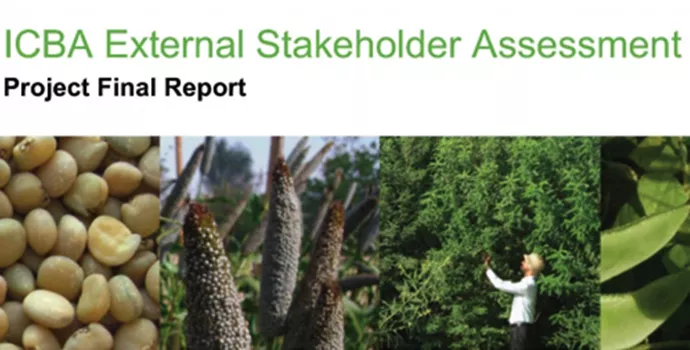ICBA publishes first stakeholder assessment report
The International Center for Biosaline Agriculture (ICBA) has published its first external stakeholder assessment report. The report is a result of year-long extensive work to collect and gauge feedback from a wide range of external stakeholders on ICBA’s performance.
Individuals from 40 global funding, research and project implementation partners of the Center took part in a survey to provide their opinions. The findings show that ICBA has a solid track-record in critical aspects of partnership management. According to the results, ICBA currently meets or exceeds the envisioned target of 75% partnership success on numerous partnership Key Performance Indicators (KPIs). They show that ICBA is particularly strong in terms of organizational adaptability, communication and information-sharing as well as relationship management processes. Identified weaknesses include benefits-sharing and project monitoring and evaluation which must be addressed by ICBA going forward.
The purpose of the survey was to identify strengths and weaknesses as viewed by the Center’s partners. The survey questions sought to determine:
- Stakeholders’ perception of ICBA’s mission and goals;
- The overlap between stakeholders’ missions and goals and ICBA’s;
- The benefits accruing to stakeholders as a result of the partnership;
- The effectiveness of ICBA’s current project and relationship management practices; and
- Communication processes and channels with partners.
The findings indicate that most of ICBA’s research is well-known among peer organizations. Partners also view ICBA as a leading global research center focused on salinity management. However, the results also show that ICBA has overall weak global visibility.
This feedback will help to shape the Center’s future strategies on improving collaborative research and communication, and better targeting messages to specific audiences.
